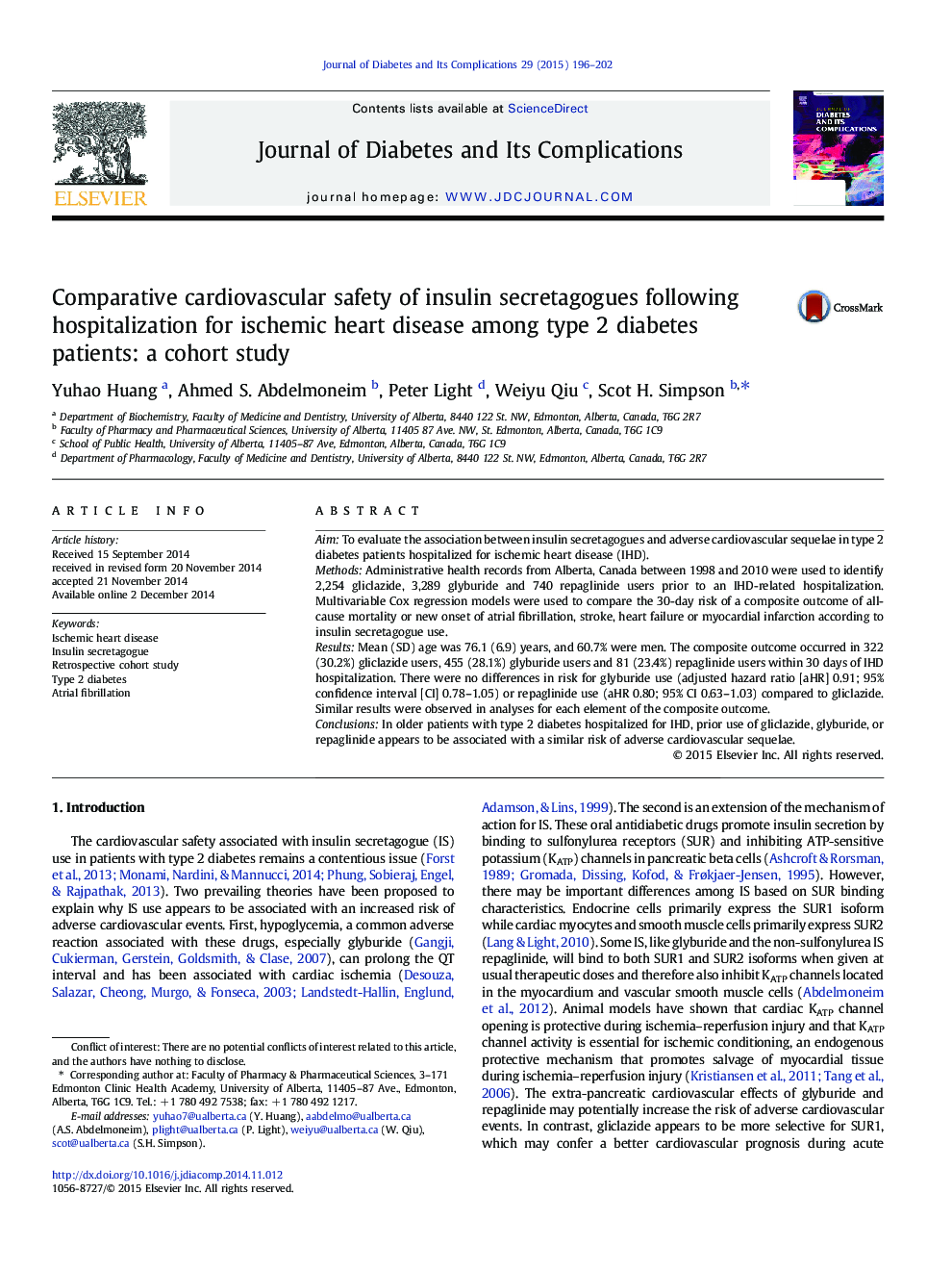| Article ID | Journal | Published Year | Pages | File Type |
|---|---|---|---|---|
| 5902416 | Journal of Diabetes and its Complications | 2015 | 7 Pages |
AimTo evaluate the association between insulin secretagogues and adverse cardiovascular sequelae in type 2 diabetes patients hospitalized for ischemic heart disease (IHD).MethodsAdministrative health records from Alberta, Canada between 1998 and 2010 were used to identify 2,254 gliclazide, 3,289 glyburide and 740 repaglinide users prior to an IHD-related hospitalization. Multivariable Cox regression models were used to compare the 30-day risk of a composite outcome of all-cause mortality or new onset of atrial fibrillation, stroke, heart failure or myocardial infarction according to insulin secretagogue use.ResultsMean (SD) age was 76.1 (6.9) years, and 60.7% were men. The composite outcome occurred in 322 (30.2%) gliclazide users, 455 (28.1%) glyburide users and 81 (23.4%) repaglinide users within 30Â days of IHD hospitalization. There were no differences in risk for glyburide use (adjusted hazard ratio [aHR] 0.91; 95% confidence interval [CI] 0.78-1.05) or repaglinide use (aHR 0.80; 95% CI 0.63-1.03) compared to gliclazide. Similar results were observed in analyses for each element of the composite outcome.ConclusionsIn older patients with type 2 diabetes hospitalized for IHD, prior use of gliclazide, glyburide, or repaglinide appears to be associated with a similar risk of adverse cardiovascular sequelae.
